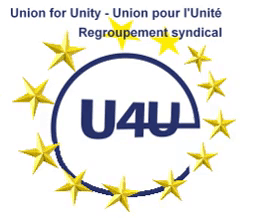European Parliament
Recruitment and training
Vote list 9!
The Commission must carry out its tasks by fully assuming its institutional and political role. To do this, it must have a forward-looking human resources management system that is not just administrative and regulatory. It must be able to anticipate the needs and talents that are indispensable, as well as to follow and support staff throughout their careers. Furthermore, open competitions - the main route for recruitment - must be simplified and their duration shortened. More alternative modes of recruitment should be allowed, such as temporary agents or a "junior professional" type programme;
The objectives and methods of induction should be rethought by improving the reception and training of new arrivals, beyond the probationary period. New staff should be allowed to familiarise themselves with the institution's services and its history. To this end, in the absence of vacant posts, the probationary period could be preceded by the immediate granting of a temporary agent contract for a period of two years, enabling successful candidates to be recruited more quickly, as soon as they have passed their external competition. During this two-year period, successful candidates would receive training and differentiated career paths in the services before being offered a position as a civil servant;
The same two-year pathway could be offered to the civil servant who joins the civil service directly as a civil servant. During the first two years, the future civil servant should also have the possibility to discover several fields and/or DGs, and to follow the necessary training for the rest of his/her career. The probationary period could thus provide a real additional assessment of the competences of future officials. Specific courses should be offered to colleagues destined for management positions;
To help colleagues build a career from the moment they enter service, the Commission must accompany their learning with a programme of targeted training, thematic, linguistic and IT. A specific effort must also be made for colleagues who have to reorient their career or who change jobs;
An effort must still be made to better welcome new staff, particularly in this period of change in organisation and working methods, and regardless of the place of employment. Our organisation is complex: guidance and easier orientation are desirable (training, support, possibilities of several paths);
With the accelerated implementation of the new hybrid working methods, a specific effort must also be made in terms of training to support staff in this transition, at all hierarchical levels;
Precariousness and disparities have increased since 2004 with the various reforms. Staff unity has been undermined. In order to reduce the disparities between the different career paths, we are in favour of the organisation of internal competitions allowing all officials (AD, AST, AST/SC) and temporary agents (TA) to reach higher grades;
Contract agents (CAs) should be able to benefit, after 6 years in post, from temporary contracts (TAs) for a further year or two, thus allowing them to enter internal competitions with a higher number of successful candidates. Internal competitions should be planned and published regularly;
In the same vein, the employer should provide free training for staff, including non-permanent staff, who are preparing for external competitions (as U4U has obtained from the EUIPO employer in Alicante). Indeed, U4U acts in the interest of all staff and prefers to give everyone access to free training provided by the employer, rather than forcing them to join a trade union in order to benefit from it;
